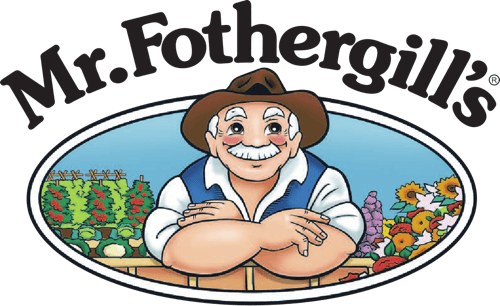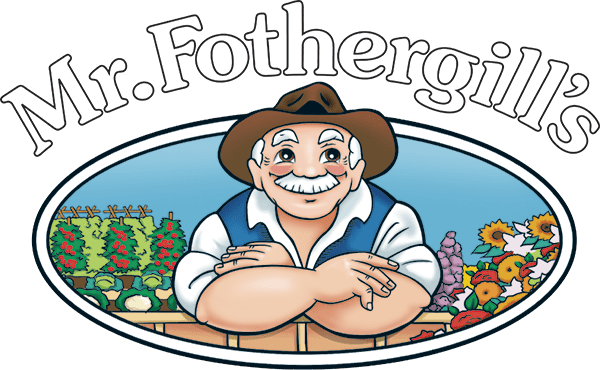Common Terms Demystified
GMO or Genetically Modified
Genetically Modified crops are from plants that have had their DNA modified using genetic engineering techniques.
The aim is to introduce a new trait to the plant which does not occur naturally in the species. Examples include resistance to certain pests, diseases or environmental conditions, and the introduction of nutrients or characteristics to enhance the yield, taste or size of the fruit.
Criticism of GM crops include ecological and economic concerns due to these organisms being subject to intellectual property law, and questions are also raised regarding safety of GM foods and whether they are needed to address the world’s food requirements.
None of the seeds in any range sold by Mr Fothergill’s are Genetically Modified.
Hybrid Plants
Hybrids are very different from Genetically Modified plants as hybrids are created by natural means of selecting parent plants, and does not involve interfering with the plant’s DNA.
In general usage, hybrid refers to offspring resulting from the mating of two genetically distinct individuals. In agriculture and gardening, hybrid seed is produced by cross-pollinated plants.
Hybrids are bred to improve the characteristics of the resulting plants, such as better yield, greater uniformity, improved colour and disease resistance.
Today, hybrid seed production is predominant in agriculture and home gardening and is one of the main contributing factors to the dramatic rise in agricultural output during the last half of the 20th Century.
Fruit grown from hybrid seeds will all have the same characteristics, but if seeds from this fruit are planted in the next cycle, they will not consistently have the desired characteristics.
A common misconception is that hybrids are sterile. This is not the case, but if the hybrid plant is pollinated by a non-hybrid, the offspring will not be true to the hybrid parent’s characteristics.
Mr Fothergill’s seed range includes two types of hybrid seed varieties:
- Single Cross Hybrids – result from the cross between two true breeding organisms and produces an F1 generation called an F1 hybrid (F1 is short for Filial 1, meaning ‘first offspring’).
- Double Cross Hybrids – result from the cross between two different F1 hybrids. Usually marked with F2 at the end of the plant name.
Open Pollinated
Open Pollinated plants are varieties that grow true from seed. This means they are capable of producing seeds from this season’s plants that will produce seedlings just like the parent plant.
However some plants will naturally be cross pollinated with other plants, so even if it is Open Pollinated, the seeds resulting from a cross pollination could yield a different plant.
Heirloom
Heirloom seeds are those that are open pollinated and have been passed down from generation to generation. They are true to type, meaning you can save seed from a plant and expect to get the same thing when you plant the seeds next season, unless they are cross-pollinated as mentioned above.
Neonicotinoids and Chemical Treatment
None of Mr Fothergill's seeds are treated with neonicotinoids. In fact over 95% of our seeds have not been treated with any chemicals at all. There is a very small percentage of seed that is treated with a fungicide, either Thiram or Apron XL as required by AQIS. These packs are clearly marked with "Do Not Eat These Seeds" plus the powder coating is dyed usually blue or pink for easy identification. This is mainly done for sweet corn, some peas and bean varieties as well as some cucumbers and radishes. Treated seeds should not be eaten or fed to animals.
The plants grown from treated seeds are perfectly safe to eat as the fungicide will stay on the seed coat and not interact with the plant.
Thiram and Apron XL are non-toxic to bees.
Organic Produce & Seeds
Organic farming is about plant health management and disease prevention without the use of synthetic chemicals (pesticides and fungicides).
Mr Fothergill’s Organic Garden seed range includes two types of organic seed varieties:
- Varieties approved by BFA (Biological Farmers Association) that carry the Australian Certified Organic logo. The BFA certification process audits not only the growing methods of the parent plants but also a number of strict criteria relating to storage and handling.
- Varieties grown by organic methods that have not yet gone through the BFA certification process.
Whether or not you use seeds from the Organic Garden range, you can still grow a crop of vegetables without using synthetic pesticides or fungicides during the growing process. Whilst not truly organic in the strictest sense you can be comfortable in the knowledge that the crops you eat are not carrying chemical residue.
Mr Fothergill’s Sprouts Alive seeds have undergone microbiological testing to ensure they are all food grade sprouts, but they are not Certified Organic.








































